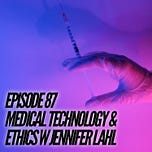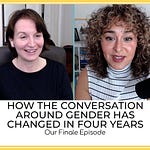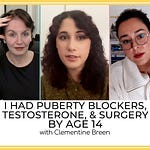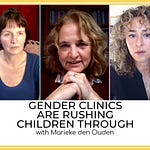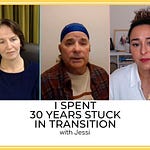Jennifer Lahl is the founder and
president of The Center for Bioethics and Culture Network. She has 25
years of experience as a pediatric critical care nurse, hospital
administrator, and senior-level nursing manager, and more recently,
she’s also become a successful filmmaker. In 2010, she made her
writing, producing, and directing debut producing the documentary
film
which has been awarded Best Documentary by the California Independent
Film Festival and has sold in more than 30 countries. She is also the
Director, Executive Producer, and co-writer of Anonymous
(2011), a documentary film exploring the stories of women and men who
were created by anonymous sperm donation. In 2014 she completed three
films on the ethics of third-party reproduction, aka surrogacy, with
a trilogy called: Breeders:
In July 2015, she released a documentary short called
which follows one woman’s egg donation journey. Lahl’s next
feature film, #BigFertility
was released in the fall of 2018.
And of course, we were particularly
interested in Jennifer’s films that focus on gender medicine. Trans
was released in June of 2021. Her forthcoming film, The
is set to release this Fall, in 2022.
In our discussion with Jennifer, she
puts forward her theories about what she calls a “superhighway”
that confidently shuttles people towards risky medical interventions;
this happens, according to Jennifer, both in the realm of fertility
and gender. Fertility is an area that Stella and I know very little
about so it was interesting to hear Jennifer share her experiences as
a nurse and filmmaker who’s been following this topic very closely.
She holds some very strong, but thought-provoking views on the
medicalization of fertility that some are sure to find controversial.
Ultimately, Jennifer’s biggest concern is that any patient, whether
they are pursuing interventions in either fertility or gender
medicine, should be fully informed about the risks involved, and the
outcomes. She also highlights that sometimes a lack of evidence
underlies the model of informed consent. This poses the question: how
can you consent to something if we have very little or no evidence
about it? We explored the parallels that Jennifer has observed in
these two areas of medicine, both, incidentally, with serious ethical
considerations around fertility and reproduction. We highly encourage
you to check out both of the films she’s made on gender, which we
also talk extensively about in this discussion. So here is our
conversation with Jennifer Lahl.
Links & Resources:
Center for Bioethics and Culture
Network:
https://www.youtube.com/channel/UCiBR4XvsCicbopYFciVxGrg
Trans Mission: What’s the Rush
to Reassign Gender:
https://www.imdb.com/title/tt14868196/
Detransition Diaries: Saving our
Sisters:
https://www.youtube.com/watch?v=NVhUoiXGWx8
Bill Joy Article: “Why the
Future Doesn’t Need Us”:
https://www.wired.com/2000/04/joy-2/
Our Father Film:
https://www.netflix.com/title/81227735
FDA puts warning label on puberty
blockers:
https://www.dailysignal.com/2022/07/28/fda-slaps-warning-on-puberty-blockers/
Extended Notes
Most of Jennifer’s nursing
career was based in pediatrics.
Pediatric people are always
educating people.
In the U.S., there are over one
million frozen embryos.
Big fertility makes a lot of
embryos because it has a high failure rate.
Profit is a motive for finding
cures in the U.S.
In the recent past, women were
treated as guinea pigs by fertility doctors.
In her movie Eggsploitation,
Jennifer spotlights young women who were endangered by fertility
doctors.
Jennifer made a movie while she
had a manuscript on the table because people no longer read.
The patient experience has shifted
during Jennifer’s tenure in medicine.
Ethics classes are not required
for medical students.
Parental authority is being
undermined by the current establishment.
Jennifer says California is close
to becoming a sanctuary state where gender-questioning teens can go
to get cross-sex hormones and surgery.
Jennifer shares the fertility
preservation information that may impact gender medicine.
The CDC publishes an annual report
on all the fertility clinics in the U.S.
Assisted reproductive technology
is too new to understand the full impacts on children born from it.
Egg donors are given drugs to put
them into a medically introduced menopause.
The American Society of
Reproductive Medicine offers guidelines to women without proper
research or testing.
Jennifer stresses the importance
of holistically treating children.
This podcast is sponsored by ReIME and
Genspect. Visit https://rethinkime.org/
to learn more.
For more about our show:

